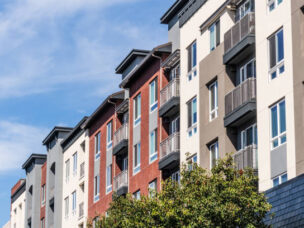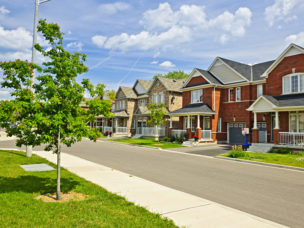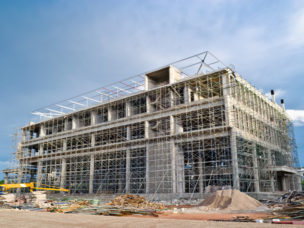Stay in the know
Subscribe to the Real Estate Blog and we’ll send you an email each time something new is posted.
Subscribe to the Real Estate Blog and we’ll send you an email each time something new is posted.
Blogs
Real Estate Blog
Statutes of Limitations on Zoning Enforcement Actions in Massachusetts
Cautious real estate purchasers or lenders always review their prospective properties for compliance with zoning regulations. In most cases, they will be able to check off the zoning compliance box on their due diligence checklist – either because:
- (i) the property complies with current requirements imposed by the zoning bylaw or ordinance, or;
- (ii) the property complied with the version of the bylaw or ordinance in effect at the time the building was constructed or the particular use was commenced, notwithstanding that restrictive amendments to the bylaw or ordinance would now prohibit such a building or use (in which case it is considered a lawful nonconforming structure or use).
But what if a building or use neither complies with the current zoning requirements nor is a lawful nonconforming structure or use? For example, consider a possible purchase or financing of a 12 year old office building in a Boston suburb. Unfortunately, one corner of the building extends 5 feet into a side yard setback area, and a portion of the building is being used for laboratory uses, in a zoning district that only permits office use.
Fortunately, Section 7 of the Massachusetts Zoning Act (Massachusetts General Laws Chapter 40A) may allow you to conclude that although the property violates the zoning bylaw or ordinance, neither the municipality nor a private citizen may bring an enforcement action to compel removal of the offending corner of the building or to stop the offending laboratory use. In fact, Section 7 provides two separate statutes of limitations, or so called “sunset provisions” – the less restrictive applies to structural violations only, while the more restrictive applies to both structural and use violations. The less restrictive provision of Section 7 prevents any enforcement action to compel the “removal, alteration or relocation of any structure” that violates a zoning bylaw or ordinance after ten years have passed from commencement of the violation. The more restrictive provision of Section 7 prevents any enforcement action to compel the “abandonment, limitation or modification of any use or the removal, alteration or relocation of any structure” that violates a zoning bylaw or ordinance after six years have passed from commencement of the violation if the property “has been improved and used in accordance with the terms of the original building permit issued by a person duly authorized to issue such permits.”
To return to our example, the building corner encroachment into the setback area should be protected by the ten year statute of limitations. Whether the laboratory use is protected by the six year statute of limitations is dependent on whether a valid building permit was issued (and can be found) that stated that a portion of the building would be used for a laboratory. This may be a difficult hurdle to overcome given that many municipalities’ building records are poorly kept and that building permits are sometimes signed by unauthorized officials and may not specify the proposed uses with any degree of specificity.
It is important to note that, although a structure or use may be protected by the six or ten year sunset provisions, the Zoning Act does not indicate, and no appellate court has addressed, whether such a structure or use should be treated as a lawful nonconforming structure or use for purposes of allowing subsequent alterations of the structure or use, or the rebuilding of the structure and recommencement of the use after a casualty.
Also, note that the Zoning Act, and therefore both statutes of limitations, applies to all cities and towns other than the City of Boston, and the Boston Zoning Code does not contain similar statutes of limitations. However, in 2001 the Appeals Court did look to the Zoning Act for guidance in rejecting an enforcement action initiated 23 years after the City of Boston had issued a permit for the use of certain premises in violation of the Boston Zoning Code (Lapidus v. Board of Appeal of Boston, 51 Mass.App.Ct. 723 (2001).



